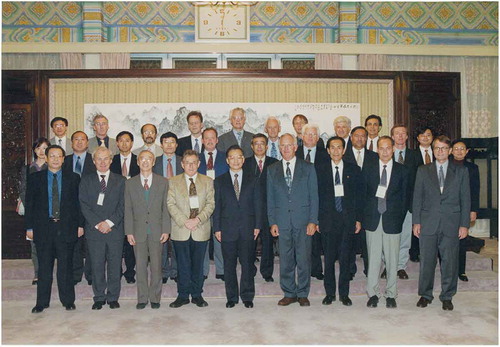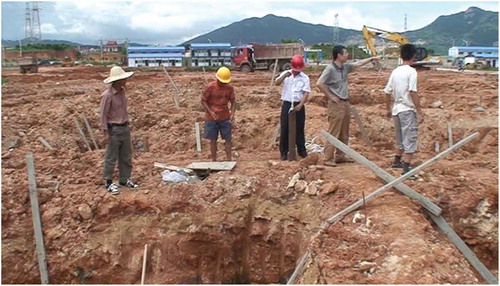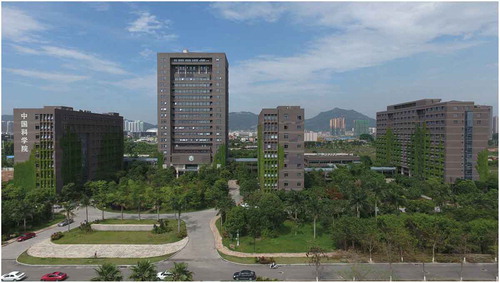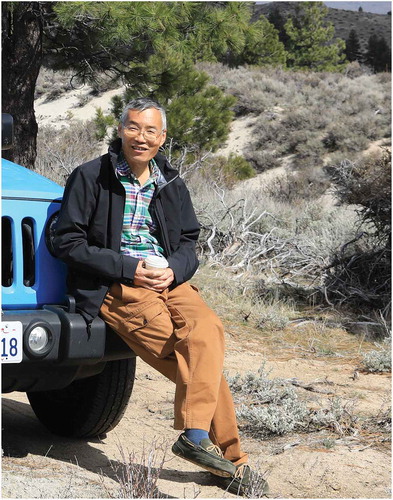Dr. Jingzhu Zhao served as the Editor-In-Chief of the International Journal of Sustainable Development and World Ecology from 2010 to 2021. He was faithful to this journal and focused on editorial work during his tenure. His broad vision of sustainable development, sweeping views on ecological research, and strenuous efforts ensured the journal’s success. Prof. Zhao suffered from severe rheumatoid arthritis for 15 years, but the constant pain did not prevent him from working hard. Even when diagnosed with pancreatic cancer at the end of June 2021, he kept up with his editorial duties for three more weeks. On 4 August 2021, Dr. Zhao passed away in Beijing, leaving all who knew him greatly saddened.
Dr. Zhao was born on 4 June 1958, in Liaoyang City, Liaoning Province, China. He was an urban boy but after graduating high school he received ‘re-education’ in the countryside. He passed his college entrance exam the first year after the Cultural Revolution. As an undergraduate, he majored in mathematics and then focused on operational research for his masters study. In 1991, he received his Ph.D. in ecology from the Research Center for Eco-Environmental Sciences (RCEES), Chinese Academy of Sciences. Supported by the Marie Curie Postdoctoral Fellowship of European Communities, he pursued postdoctoral study at the Institute of Environmental Studies, Vrije Universiteit Amsterdam, from 1993 to 1994.
Dr. Zhao served as Deputy Director and then as Director of the Key Laboratory of Systems Ecology at RCEES from 1991 to 1996, Deputy Director and then Director of RCEES from 1996 to 2006, and head of the preparatory team of the Institute of Urban Environment (IUE), Chinese Academy of Sciences, from 2006 to 2009. He also took on civic positions during that time, when he was appointed deputy commissioner of the Administration Office of Hechi Region, Guangxi Province, from 1995 to 1996, and deputy mayor of Lijiang City, Yunnan Province, from 2005 to 2006.
Dr. Zhao enjoyed a rich working experience in academia and goverment, achieving much in sustainable development and ecological research. In addition to his significant contributions to the success of the International Journal of Sustainable Development and World Ecology, Dr. Zhao garnered four outstanding recognitions.
1. Co-author of China’s Agenda 21
In 1992, as head of the expert group of the Chinese government delegation, Dr. Zhao attended the United Nations Conference on Environment and Development (UNCED) in Rio de Janeiro. After the conference, he coordinated the drafting of China’s Agenda 21. For that task, he applied the emerging concept of sustainable development to the practice of balancing economic, societal, and environmental development. He put forward the strategic objectives, key areas, and realization paths for China’s sustainable development. China’s Agenda 21 was approved by an Executive Meeting of the State Council of the People’s Republic of China in March 1994, making China the first country in the world to issue a national strategic report on sustainable development.
After the release of China’s Agenda 21, Dr. Zhao participated in the formulation, research, and demonstration of a series of laws and regulations, policy standards, planning, and capacity-building designs aimed at the promotion of sustainable development in China. His efforts prompted much action aimed at identifying key areas, as well as implementing key tasks, of sustainable development through different stages across the country. In 2002, he once more joined the Chinese government’s expert delegation to the World Summit on Sustainable Development in Johannesburg, South Africa.
2. Reformer of the RCEES
When Dr. Zhao became the director of the RCEES in 1999, China was at a critical point of transformation from the old structure to the new, abolishing the system of secure lifetime employment and stimulating new vitality. The RCEES was not excepted from this transformation. Dr. Zhao instituted reform transparently and bravely, promoting the advancement of the research center and focusing on scientific research. He created appropriate policies and improved necessary infrastructures for scientific research.
At the research center, Dr. Zhao was an innovator. His two-pronged method of urging and stimulating emplyees completely retired the old, excessively-secure employment system and created a brand new, positive scientific research atomosphere. At the same time, he encouraged everyone to dedicate themselves to their scientific research projects and funds. This enabled a rapid increase in research outcomes and raised the prestige of the research center, which subsequently laid a solid foundation for the construction and development of two state key laboratories: the State Key Laboratory of Environmental Chemistry and Ecotoxicology and the State Key Laboratory of Urban and Regional Ecology. Within a few years, he managed to lead the research center from a small-scale research institute to the vanguard of the resources and environment field within the Chinese Academy of Sciences. Thanks to all his efforts and contributions, the RCEES’ international influence gradually increased and is now in the top 1% of Essential Science Indicators (ESI) global rankings in six research fields: Geoscience, Chemistry, Engineering, Biology/Biochemistry engineering, Plant & Animal Science, and Agriculture. But remarkably, it is in the top 1‰ in Environment/Ecology.
3. Founder of the institute of urban environment
March 2006, Dr. Zhao began the preparations to establish a new national-level research institution, the Institute of Urban Environment (IUE), Chinese Academy of Sciences. After visiting several provinces, he chose to build the IUE main campus on the southeast coast of China at Xinglin Bay in Xiamen. At that time, the site was a swampy wasteland, but Dr. Zhao made a landscape design from scratch and drew up a blueprint for the Institute’s future development, all based on limited funding. As soon as the campus construction started, he began recruiting talent and developing scientific research projects at a temporary work place in Xiamen City. According to the contract, construction was to be finished by 20 August 2008, but when that date came along electricity and water were not ready. Undeterred, he led dozens of employees and graduate students to the unfinished campus and they all moved in on the closing date. Those pioneers are rightfully proud of that tough experience and later named it ‘820 spirit’ to inspire newcomers to the IUE.
Dr. Zhao’s systematic, advanced, and operable management system for the Institute’s construction, personnel recruitment, and research and development guaranteed the Institute would have a healthy and efficient development. He emphasized a cultural imperative in the construction of the Institute. He created the institute motto, ‘Loyalty & Endeavor’, and encouraged every member of the Institute to be loyal to their research work and the Institute. He stressed sincerity between collaborators and colleagues, even requiring them to spare no effort in their work and to take full responsiblity for their duties. After 15 years of continuous effort, the IUE has become the world’s largest research institution with urban environment as its research subject, and is in the top 1% of ESI global rankings in Environment/Ecology and Environmental Engineering. Furthermore, Dr. Zhao donated to the Institute his lifelong collections of thousands of books, hundreds of antiquities about urban development, and hundreds of items related to the establishment of the Institute.
4. Creator of landsenses ecology
In 2016, Dr. Zhao innovatively put forward the concept of ‘landsenses ecology’, which emphasizes the study of land-use planning, construction, and management via the analysis of natural elements, physical senses, psychological perceptions, socio-economic perspectives, process-risks, and associated aspects. He bred scientific innovation by intertwining traditional Chinese culture with advanced technologies like big data, Internet of Things, artificial intelligence, etc. The theory of landsenses ecology was used to guide the planning and design of ecological infrastructure in national key demonstration areas such as the Xiong’an New Area, the Guangdong-Hong Kong-Macao Greater Bay Area, and the Beibu Gulf Urban Agglomeration.
Dr. Zhao’s academic views were outstandingly holistic and systematic. Considering human well-being as central, he combined ecosystem services, social-economic-natural complex ecosystems, and sustainable development through landsenses ecology and put forward the concept of the ‘hyperfeedback system’. He vigorously promoted the practice of landsenses ecology, allowing people in the complex system to resonate with landsense creation and form a corresponding sense of community that enabled and ensured that that system would move forward, along with the vision or goal of sustainable development.
Dr. Zhao is remembered as a strict leader, innovative researcher, respectful collaborator, and dependable friend! His passing leaves a great void in our world.
A group photo of the Chinese government’s expert delegation at the 2002 UNCED in Rio de Janeiro. Dr. Zhao is fourth from the left on row 2. Photo credit: Dr. Jingzhu Zhao

Dr. Zhao (second from right) frequently came to the IUE construction site to urge on its progress. He often invited guests along. Photo credit: Dr. Guofan Shao, June 2007

Dr. Zhao left his mark on every component of the IUE campus. For example, he designed a natural water recycling system and worked the local culture into the campus’ modern urban landscape. Even the building’s exterior color was inspired by tree bark. His landscape design and architure concepts were later incorporated into subsequent nearby institution construction projects. Photo credit: Dr. Tong Xu, June 2016


